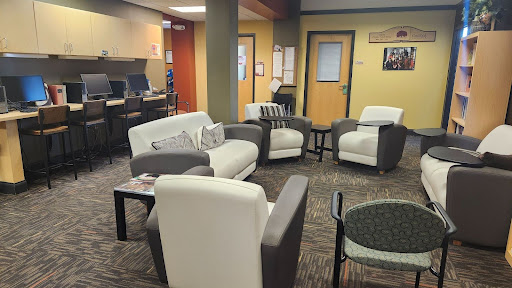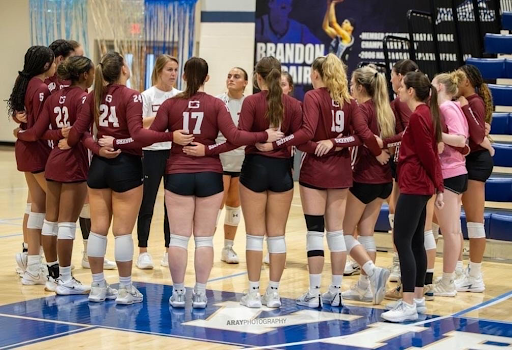Over the summer, Guilford College transformed Bauman Hall room 104 into a new high-tech hybrid classroom, allowing faculty members to easily record and transmit their class content online.
“It’s a classroom that has the ability to show what the teacher is doing to students at home,” said Instructional Technology Librarian Jessica Sender. “It’s equipped with an Eno Board, a high-resolution camera, and we’ve been using it in conjunction with Adobe Connect.”
“I personally think that a hybrid classroom is a really neat idea,” said senior Audrey Afanda. “This will enable students to be able to access the course material any time online, so they could have more time to do the homework.
“A lot of students at first (might) not be welcoming to the change, but the more involved … they get, they would see the benefits of a hybrid class because it gives you more access and flexibility to accomplish your academic goals.”
Hybrid learning could become a game changer for how education is delivered. This new model intertwines interactive learning with technological advances in order to offer experiences that extend beyond the classroom.
“The concept behind hybrid online learning is to blend face-to-face learning, like a traditional classroom, with online learning,” said Chief Information Officer of IT&S Craig Gray. “It allows students who are not physically present to attend the class at Guilford College.”
Hybrid education will shape the coming generation of students, focusing on task analysis by creating portable data, better input and editing methods for both the teacher and learner.
“We’re introducing students and faculty to new technology and hopefully introducing new students to the values of the Quaker education,” said Gray. “Live lectures can be recorded … to be played back later, which can enrich the students’ experience. … It also provides a platform for faculty members to evaluate class performance and teaching methods.”
Hybrid courses could potentially open the door for more meaningful discussion since students can read, discuss and respond to material at their own pace.
Aaron Fetrow, vice president for student affairs and dean of students, plans to teach a hybrid course in criminal procedure in the spring.
“We want to try to deliver courses in an online fashion that fit pedagogy,” said Fetrow. “Pure online does not fit with Guilford’s teaching style.”
According to Sender, Guilford currently has one hybrid course already underway. The Fundamentals of Computer Forensics and Cyber Security will be taught by Associate Professor of Justice and Policy Studies Will Pizio, with help from Chafic Bou-Saba, visiting assistant professor of computer and information technology.
The course’s success could lead to its return in the spring.
Educational institutions everywhere are shifting towards a more web-based curriculum to keep up with rapid technological advances. In a recent presentation, President Kent Chabotar discussed this trend towards online learning.
“In 2009, 55 percent of all students took all their courses in the classroom,” said Chabotar. “By 2014, only 20 percent will take all the courses in the classroom. In the last 10 years, enrollment in online courses has tripled to 33 percent of student population.”
Gray also understands the need for the school to stay up-to-date with these new learning models.
“With education increasingly moving to the Internet, it’s important for us as a Quaker institution to be able to deliver our culture and the value of our education through the same media.
“It’s not technology that is important per se. It’s the value of education that is enhanced by technology.”




